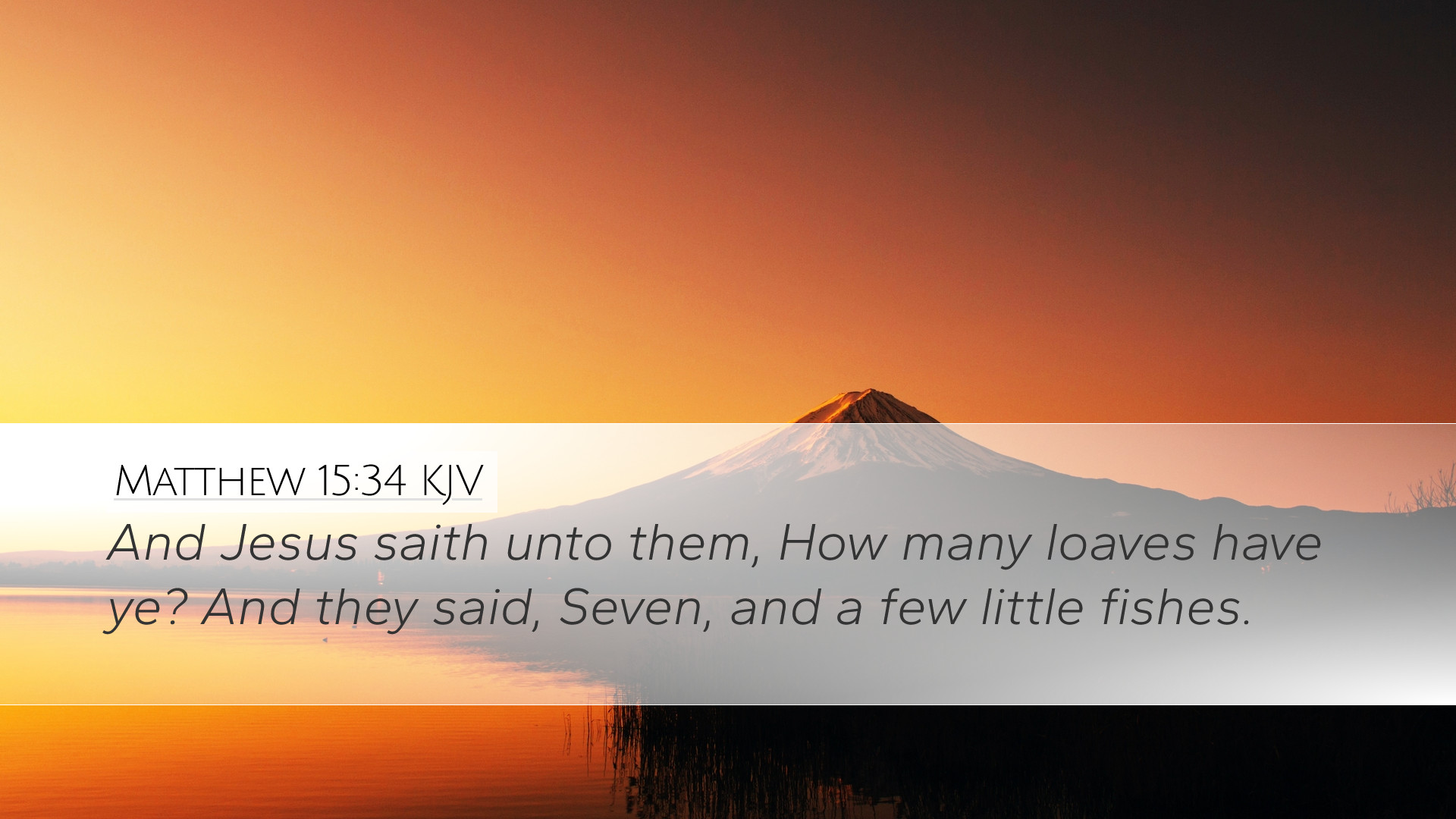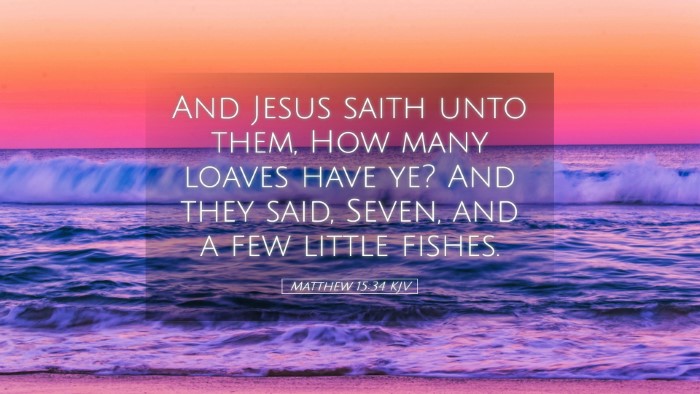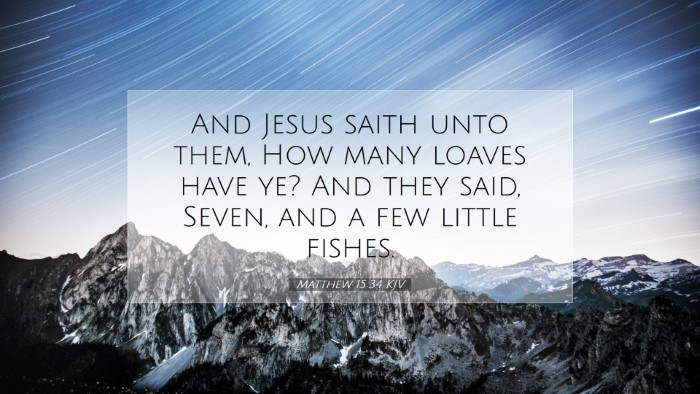Commentary on Matthew 15:34
Matthew 15:34 states, "And Jesus said unto them, How many loaves have ye? And they said, Seven, and a few little fishes." This verse is part of the narrative of the feeding of the four thousand, which is a profound incident that reveals both the compassion of Christ and the principles of provision and thanksgiving that resonate throughout Scripture.
Contextual Analysis
This miracle follows the earlier feeding of the five thousand in Matthew 14, yet it is distinct in its context and audience. Here, the multitude is gathered in a desolate place, and the Lord is prompted by their hunger and their willingness to follow Him for three days without food. This situation invites a deeper reflection on the nature of spiritual hunger and physical sustenance.
Exegesis and Theological Insights
This verse raises questions regarding the nature of resources available to fulfill needs - a theme prevalent in the ministry of Jesus. The question, "How many loaves have ye?", is significant as it directs the attention back to the disciples, emphasizing their participation in the miracle. They respond with the resources they have - seven loaves and a few little fishes.
Disciples' Role in God's Provision
- Dependence on Christ: The disciples' response highlights their initial lack of understanding of Jesus' sufficiency. They present limited resources, representing humanity's often meager offerings before the omnipotent Creator.
- Collaboration in Ministry: Jesus involves the disciples in the process. This engagement illustrates the principle that while Christ is the ultimate provider, He invites His followers to participate in His work, emphasizing the theme of cooperation in divine undertakings.
- Faith and Reality: The disciples’ mention of "a few little fishes" demonstrates their awareness of physical limitations. Yet, this highlights the contrast between human limitations and divine power, echoing the biblical truth that God is able to multiply and transform what seems insufficient.
The Nature of Christ's Provision
In scripture, bread often symbolizes sustenance, security, and divine provision. The act of Jesus asking for the loaves is symbolic as well. It indicates that sincere prayers of thanksgiving and acknowledgment of what God has provided are essential.
- Thankfulness Emphasized: Earlier in verse 32, Jesus expresses concern for the multitude's hunger, demonstrating His compassion and understanding of human needs. In biblical contexts, thankfulness precedes the miraculous. The act of offering what little they have—seven loaves—demonstrates humility and recognizance of divine provision.
- Multiplicative Nature of God's Provision: Just as in the previous account of the feeding of the five thousand, the multiplication of loaves and fishes signifies that God can do more with little than we can with much. This is a recurrent theme exemplifying God's generosity.
Application for Believers
This passage calls believers to contemplate their own resources and how they present them to God. Much can be drawn concerning the attitudes we should cultivate in our stewardship and faithfulness in ministry.
- Faith in Scarcity: Many congregants may feel that they lack the necessary resources—be it time, talent, or treasure. This scripture assures us God can work mightily with what we offer in faith.
- Empowerment in Ministry: Church leaders are reminded of their role in sacrificing their limitations at the feet of Christ, thereby allowing Him to work through them to meet the needs of those they serve.
Concluding Reflections
In summary, Matthew 15:34 not only marks the beginning of a miraculous event but also presents powerful themes that resonate with deep spiritual and practical insights for leaders, scholars, and believers alike. It reflects the inexhaustible nature of Christ's ability to provide out of apparent insufficiency. The recollection and recognition of resources, when placed in Christ's hands, invite the miraculous and sustain the hungry.


